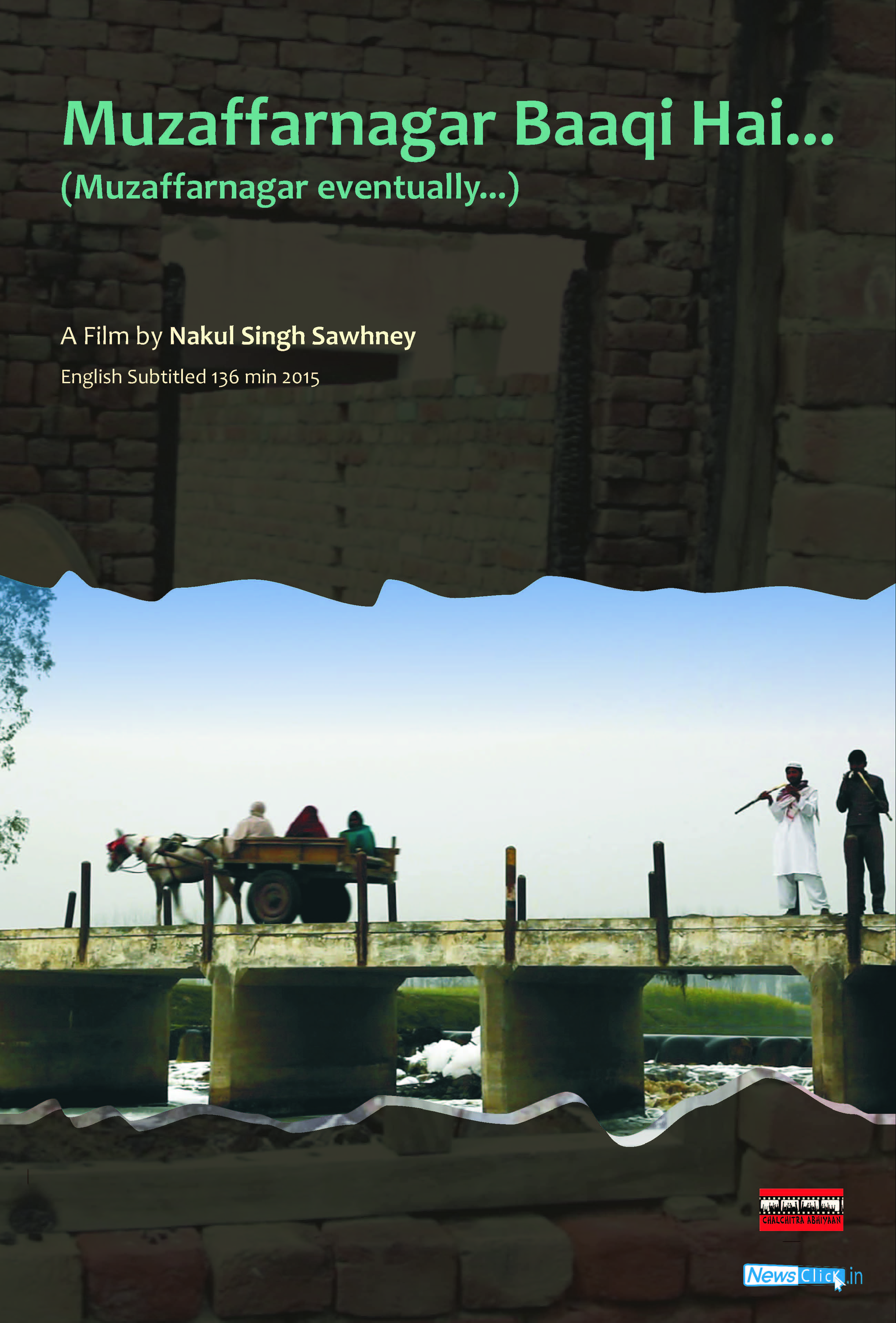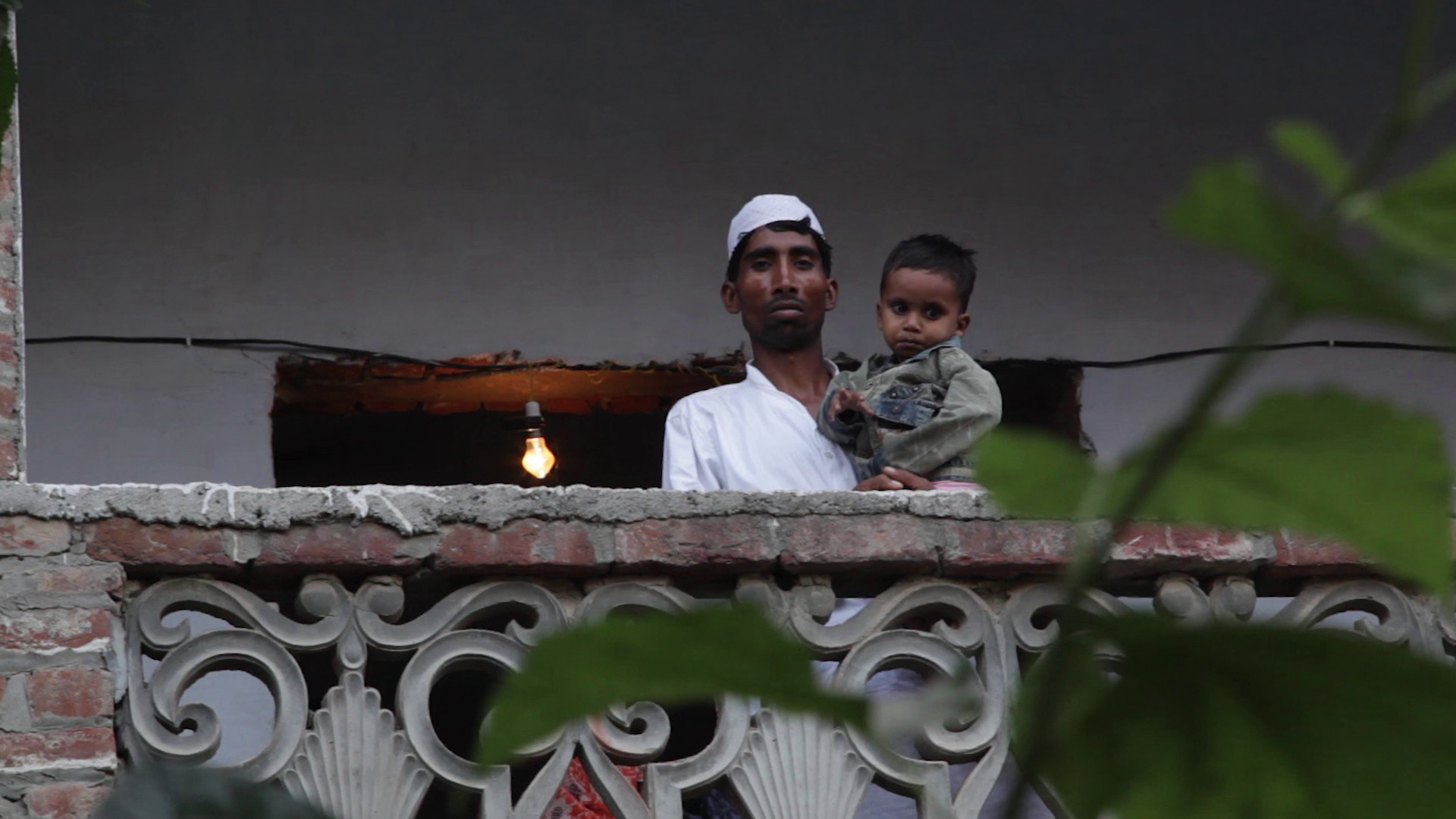Event
Screening and Q&A with Director Nakul Singh Sawhney

Muzaffarnagar Baaqi Hai... (Muzaffarnagar eventually...)
In September 2013, Muzaffarnagar and Shamli districts of Western Uttar Pradesh, India, witnessed one of India's worst ever anti-Muslim pogrom since Indian Independence. More than 100 people were killed and close to 80,000 people were displaced.
In the past, the two districts have seen relative harmony between Muslims and Hindus. What happened this time?
Muzaffarnagar Baaqi Hai... (Muzaffarnagar eventually...) straddles between various socio-political-economic dynamics in the area that affected or have been affected by the violence.
The film speaks to a cross-section of people. While looking at the immediate violence and it's repercussions, it takes a journey around the many facets of the massacre- the question of a woman's 'honour', which becomes the biggest rallying point to instigate people, the way communal polarisation was orchestrated by Hindu nationalist organisations including BJP-RSS, the merging of caste identity politics within the larger Hindutva fold and the breakdown of the once powerful farmers' union, Bhartiya Kissan Union, from this region, whose survival hinged on the unity of Hindu and Muslim peasants. It also explores the various aspects of Dalit politics in the districts and the dubious role of the Samajwadi Party, the ruling party in Uttar Pradesh at the time of the riots. This has, today, resulted in a feeling of complete alienation and marginalisation of the Muslim community.
All these aspects are weaved together by the 2014 Indian General election campaign. The film looks at how the massacre finally found its resonance in these elections. But in the midst of this gloom the film narrates the tale of a continued and growing resistance in Muzaffarnagar and Shamli districts against the corporate- communal nexus. Muzaffarangar and Shamli districts have not given in yet. And so, the film asks the question, what will be the fate of Muzaffarnagar, eventually?

Nakul Singh Sawhney directed his first film in 2005, With a little help from my friends, which won the award for the 2nd best film at the 60 Seconds to Fame film festival in Chennai. He then completed a course in TV direction at the FTII, Pune, during 2005-06. At the Film Institute, he directed Agaurav and Undecided that won awards for the 2nd Best Film and Best Director respectively at the Hyderabad International Film Festival. After completing his course, he made a feature length documentary Once upon a time in Chheharta on the history of the working class movement of Chheharta, Amritsar. He went on to work with Mr. Saeed Mirza on the feature film, Ek Tho Chance where he directed the 'making' of the film and also worked as the post-production supervisor of the film. In 2012, he finished directing the film Izzatnagari Ki Asabhya Betiyaan, a critically acclaimed film on "honour" crimes in Haryana. Another version of the same film titled, Immoral Daughters has been screened in several parts of the country as also in festivals like IDSFFK, Vibgyor and at the Film South Asia Film Festival in Nepal. His latest film is on the Muzaffarnagar massacre that broke out in September 2013, titled Muzaffarnagar Baaqi Hai... (Muzaffarnagar Eventually...). The film has been screened at several venues across the India and abroad, including at prestigious film festivals like Cinema of Resistance and Film South Asia (Nepal) and Mumbai International Film Festival.
